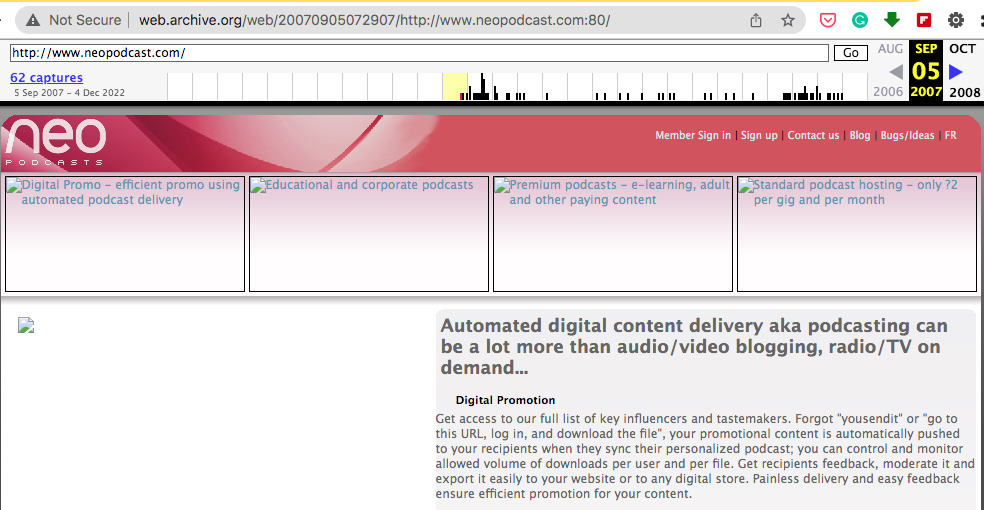What is podcast paid subscription?
A podcast paid subscription is a monetization model for podcast creators, where listeners pay a regular fee to access exclusive content, ad-free episodes, or other perks. This model allows podcasters to generate revenue directly from their audience while providing subscribers with a premium listening experience or additional benefits such as bonus episodes or early access to new content.
History of Paid podcasts subscriptions
It is difficult to pinpoint the exact first instance of podcast paid subscriptions, as many independent podcasters have experimented with various monetization models over the years. However, NeoMusicStore added this feature first in 2005 for any music purchase, then for music label subscriptions (to get an early download for any release for the subscribed music label). It was then used for a DJ Pool and Digital Promotion by NeoPodcast (still DJing-founded) in 2007.
Patreon, launched in 2013, has been a popular platform for podcast creators to offer paid subscriptions and exclusive content to their audience. Both Apple Podcasts and Spotify introduced their subscription model, which further popularized the concept of podcast-paid subscriptions on a larger scale.
First paid podcast subscriptions appeared in DJing-founded NeoMusicStore independent music store in 2005 then NeoPodcast DJ pool
Podcasts: The Ultimate Service for Creators to Engage Their Community
Repurpose your recordings as podcast content
While you can create new content from scratch, it's not always necessary. Repurposing live event recordings, whether online or in-person, as podcast content is an efficient way to monetize your events.

DJing-founded NeoPodcast Digital Promotion and DJ Pool using private podcasts in 2007
Retain control over your audience data
By relying on user-generated content platforms like YouTube and Facebook, creators often have limited insights into their audience beyond basic statistics. By managing your own podcast, you can retain valuable data about your community, enabling you to recommend your content and services directly to your listeners, rather than having them redirected to other videos or targeted by advertisements.
Exclusive live recordings, unique songs or remixes, music stems, DJ sets - musicians can offer an array of exclusive content through private podcasts, catering to their most dedicated fans.
What are the benefits of offering a private podcast for creators?
- Enhanced audience engagement: Private podcasts, whether free with email collection or paid via subscription, allow creators to foster a closer connection with their most dedicated fans. These listeners are more likely to engage with the content and share feedback, resulting in a more interactive experience.
- Email collection: By offering a private podcast for free in exchange for an email address, creators can grow their mailing list, enabling more targeted and personalized communication with their audience. This can lead to increased promotion of other products, services, or events.
- Monetization opportunities: Paid private podcast subscriptions generate a direct source of income for creators, providing them with financial support to continue producing quality content. This also allows creators to offer exclusive or premium content to paying subscribers, increasing the value proposition for their audience.
- Greater control over content distribution: With a private podcast, creators maintain more control over the distribution and accessibility of their content, ensuring that only the intended audience has access. This can be particularly useful for niche topics or exclusive content that may not be suitable for a broader public audience.
- Enhanced content focus: Private podcasts enable creators to focus on producing content tailored specifically to their core audience's interests, resulting in a more targeted and relevant listening experience. This can lead to higher listener satisfaction and loyalty, as well as increased word-of-mouth promotion.

